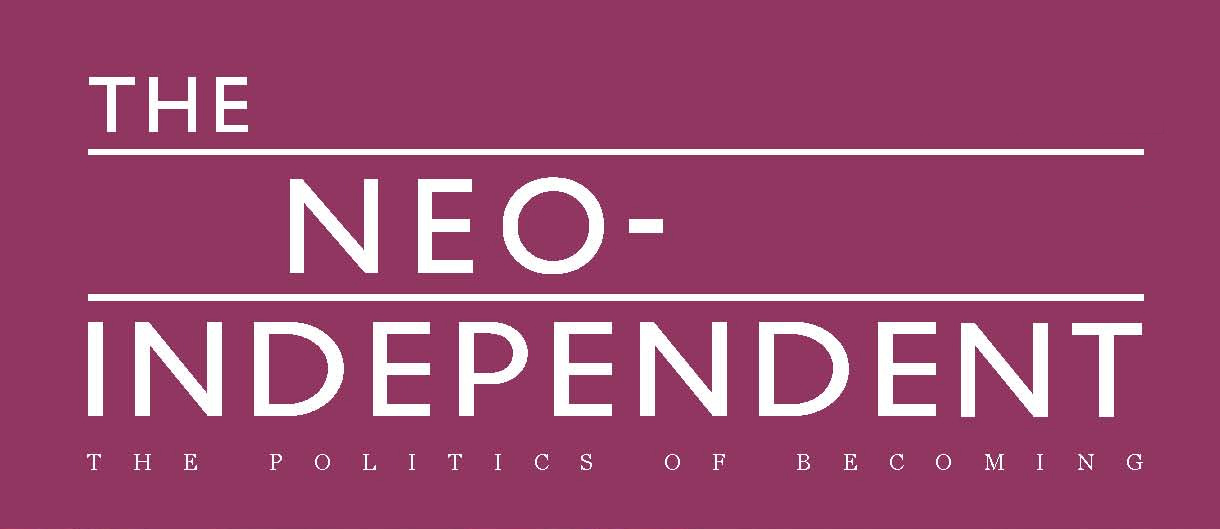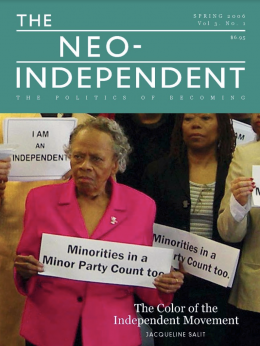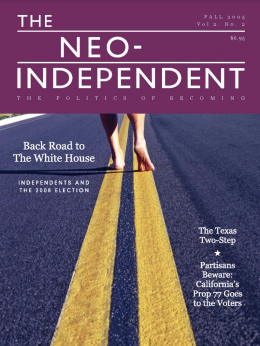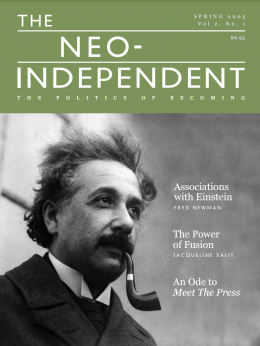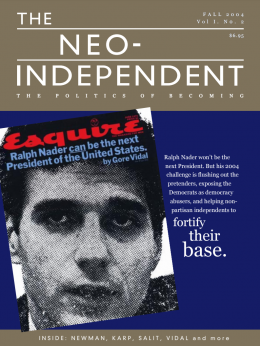The Neo-Independent Magazine
Neo-independent
adj. 1 of, or pertaining to, the movement of independent voters for political recognition and popular power _n. an independent voter in the post-Perot era, without traditional ideological attachments, seeking the overthrow of bipartisan political corruption _adj. 2 of, or pertaining to, an independent political force styling itself as a postmodern progressive counterweight to neo-conservatism, or the neo-cons.
